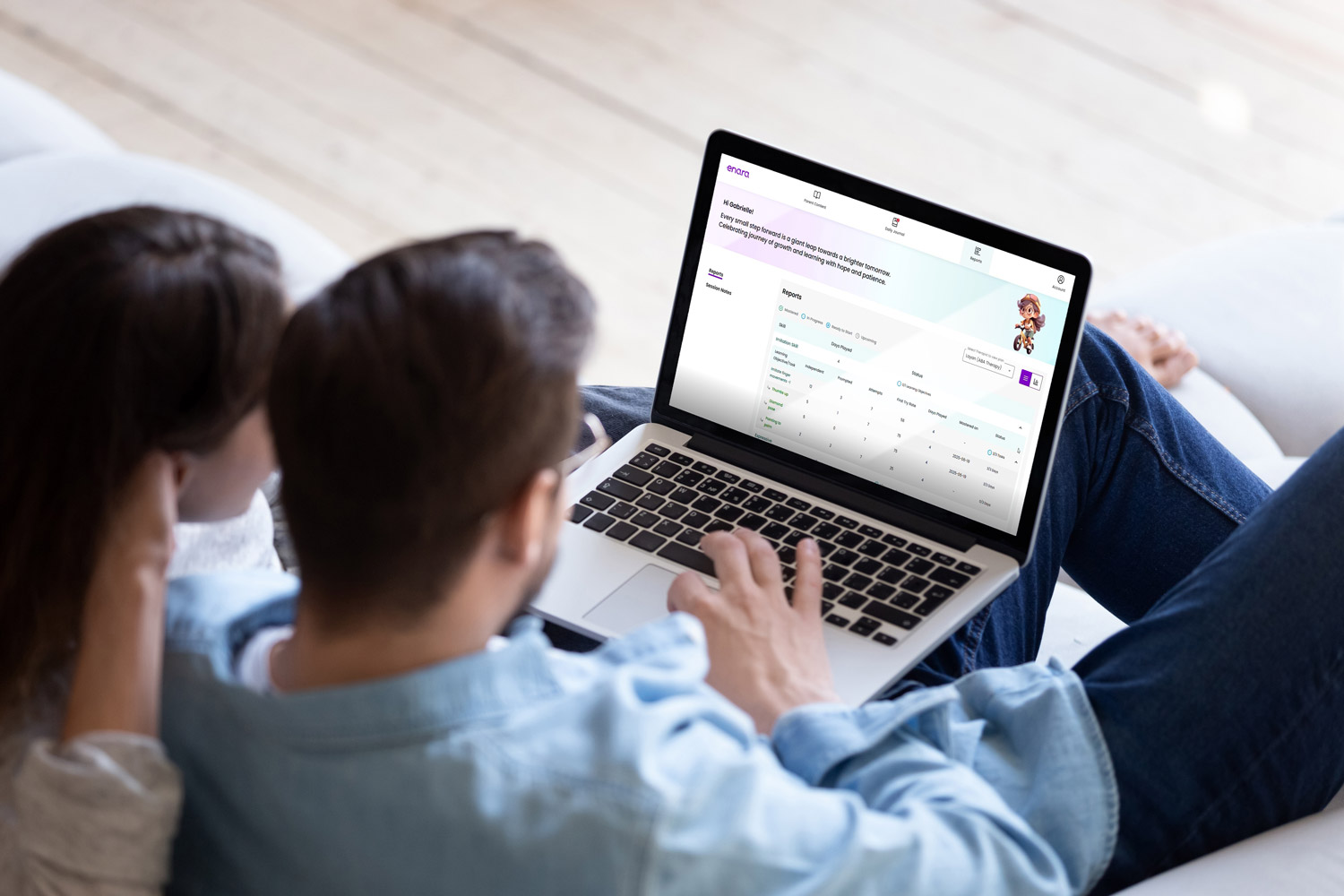If you're the parent of a child with learning challenges, chances are you've asked yourself this more than once:
“Are we actually making progress?”
Not just the kind of progress you feel on a good day or notice in a fleeting moment, but the real and steady kind. The kind that shows your child is learning, growing, and truly benefiting from therapy and the hours of daily practice.
It might be something as small as pointing to the right picture or imitating a simple gesture. These may seem tiny, but they add up. And tracking that progress truly matters.
That’s where Enara’s Reports feature comes in.
It gives you a clear picture of what your child is practicing and how things are going.
From Daily Tasks to Clear Insights
Let’s say your child is practicing imitation — a key skill for learning and communication. Other systems might just say, “Practiced 5 times.” That’s vague.
Enara gives you the full picture:
-
How often your child tried the task on their own
-
How many times they needed a prompt
-
Whether they got it right the first time
-
And the exact date the skill was mastered
This kind of detail isn’t just nice to have. It’s essential. Because kids learn in steps, not in big jumps. And tracking those steps helps both therapists and parents know what’s working, and where to adjust.
This approach is based on a method called task analysis, which breaks big skills into small, measurable parts. Studies show this leads to better results in early intervention.
Building Trust Between Parents and Therapists
Research shows that when parents and therapists work together, outcomes improve, and early intervention becomes more effective. With Enara Reports, that’s easy.
For example, if you want to know about your child’s session last week, just click on the specific date in the session notes calendar in Reports. There, you’ll find:
-
A session summary
-
Therapist’s notes and observations
-
And a download option for your reference
It takes away the guesswork. Everything is saved and easy to access whenever you need it — no more struggling to remember what was shared in a quick update after a therapy session.
Why It Matters
Progress for children with learning differences can be slow or subtle. But when it’s visible and shared, it builds momentum.
Enara Reports help parents feel confident, involved, and informed. They help therapists make better decisions. And most of all, they help kids stay on track.
So next time you wonder, “Is all this making a difference?” — open the Report.
And you’ll see the answer: Yes. They are. Step by step. Skill by skill.



